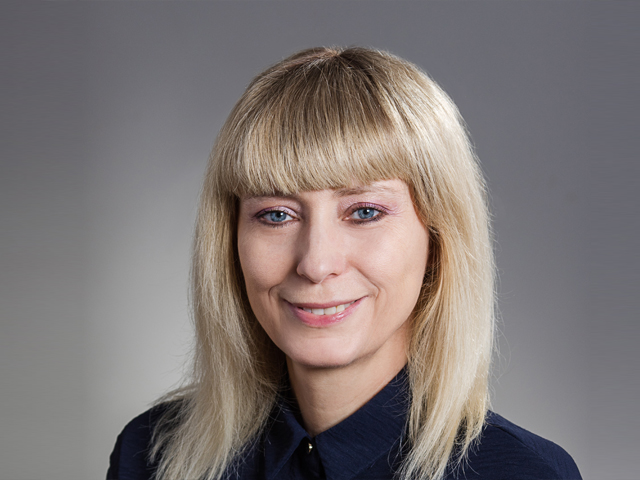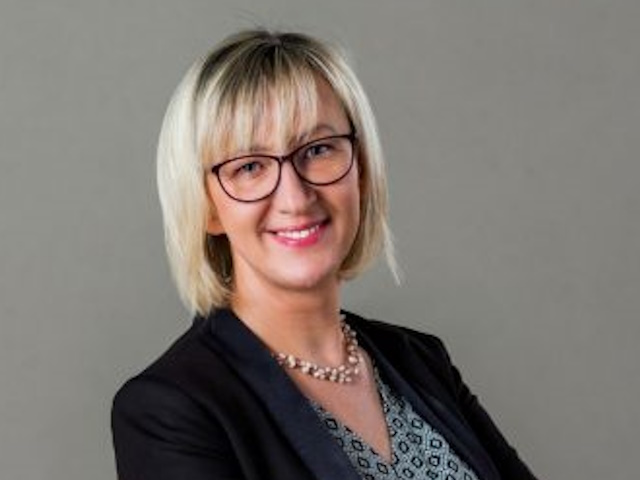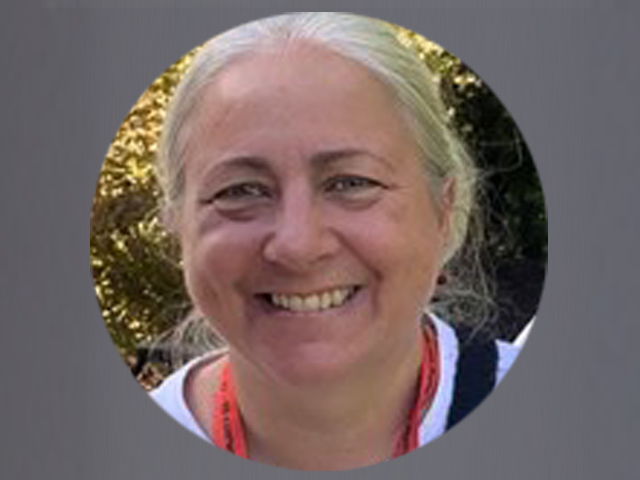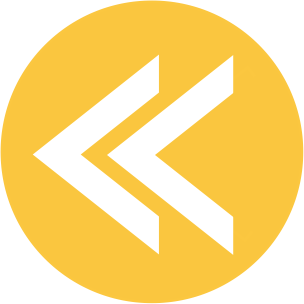
Ewa Chwalko, PhD
Where Maps Fall Silent: A Story About How to Take Care of Your Own in the Age of Artificial Intelligence
Doctor of Humanities, graduate in Polish Philology and History from the University of Wroclaw, traveler, and author.
Professionally, she works in academic publishing at the Wrocław University of Environmental and Life Sciences. She is the first Polish
woman - and the second woman in the world - to have completed the Carpathian Arc Trail.
She was awarded a KOLOSY 2021 distinction in the Achievement category. Her first travel book, The Carpathian Arc – 84 Days of a Solo Journey, earned her the Kolos – Maciej Kuczyński Award for the Best Travel Debut of 2022 and an honorable mention in the Magellan Award for the Best Travel Book of 2022. Her next book, Under the Sky of Foreign Gods: A Solo Traverse of the Scandinavian Mountains, received the Grand Prix – Magellan Award in the 2025 “Best Travel Publications” competition.
She is also the author of a popular guidebook to Wrocław and a book about the first Polish professors who rebuilt academia in Wrocław after World War II.

Magdalena Roszak, PhD, DSc
Debate – The Digital University, the Human Dimension: Accessibility, Integrity, and Responsibility in the Age of AI
Graduate of Adam Mickiewicz University in Poznań – Faculty of Mathematics and Computer Science, and Faculty of Social Sciences (Institute of Psychology).
She conducts interdisciplinary research at the Poznań University of Medical Sciences (PUMS), combining medical sciences with the application
of computer science and mathematics. As a result, she initiated the first research projects in Poland on the effectiveness of academic e-learning in medical education.
She is an implementer of remote education portals, as well as the creator and methodologist of multimedia educational resources (2021–2023 project E-materials
for the healthcare, social assistance, and public safety sectors,
POWR.02.15.00-00-3051/20, in cooperation with the Lodz University of Technology).
President of the Board of the Academic E-learning Association, Member of the Polish Information Processing Society, and recipient of the 2019 Team Award of the Minister of Health for significant achievements in innovative and pioneering medical education. Member of the 2020 Expert Team of the Ministry of National Education (MEN) for qualifications: Designing Didactic Processes in Distance Education and Using Online Tools in Distance Education, aligned with the Polish Qualifications Framework.
Head of the postgraduate program Data Science in Medicine at PUMS, developed in collaboration with the innovative company ROCHE and implemented under a grant from the Medical Research Agency.

Barbara Habrych
Workshop: Resilience or Psychological Sensitivity? Human Challenges in the Age of Artificial Intelligence
Business and education trainer, educator, and HR expert with extensive business experience in supporting the development of managers and employees, as well as an educator of young adults.
She specializes in tutoring, adult learning methods, career counseling, the labor market, HR processes, and developing mental resilience.
Certified Mental Toughness (MTQ Plus) consultant and advocate of lifelong active learning methods. Certified Tutor, Accredited Tutoring Practitioner,
and trainer and supervisor of tutors at Collegium Wratislaviense. Career counselor with a talent for discovering others’ strengths.
She has delivered over 6,000 hours of training and workshops and more than 700 hours of individual support, including tutoring, mentoring, tutoring supervision, and career counseling.
She shares her knowledge and experience through expert articles published on EPALE – the Electronic Platform for Adult Learning in Europe, where she also serves as an Ambassador.

Anna Turula, PhD, Professor at the University of Wrocław
AI Literacy – Prompts, Ethics, and Critical Thinking
A faculty member at the Institute of English Studies, University of Wrocław. She has over 35 years of experience in language teaching,
20 years of experience in university-level foreign language teacher education,
and nearly 20 years of experience in distance education
- both in virtual learning environments and through various digital tools, including AI.
Her research and publications focus on the cognitive and affective dimensions of foreign language teaching (both traditional and online), intercultural communicative competence, the use of artificial intelligence in language and academic education, and foreign language teacher training.

